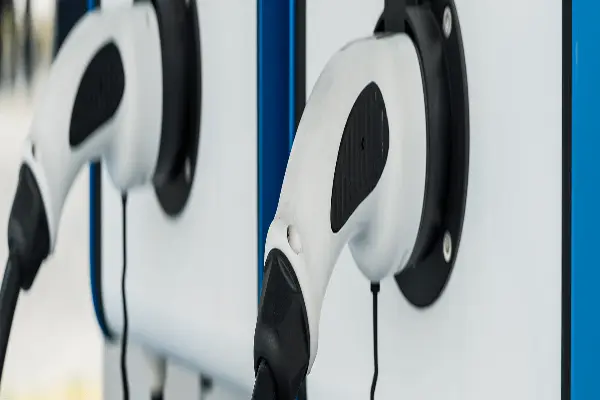
Enabling Seamless EV-Charger Interoperability and a Greener Future of Mobility

Enabling Seamless EV-Charger Interoperability and a Greener Future of Mobility
DEKRA ISO 15118 Communication Protocol Testing and Certification Services
A Global Standard for EV-to-Charger(EVSE)Communication
The pending energy crisis and the necessity to reduce greenhouse gas emissions have led vehicle manufacturer's to make a very significant effort to reduce the energy consumption of their (the) vehicles. They are presently developing vehicles partly or completely propelled by electric energy. Those vehicles will reduce the dependency on oil, improve global energy efficiency and reduce the total Co, (carbon) emissions for road transportation if the electricity is produced from renewable sources.
To charge the batteries of such vehicles, specific charging infrastructure is required. Much of the standardisation work on dimensional and electrical specifications of the charging infrastructure and the vehicle interface is already treated in the relevant IS0 or lEC groups. However the question of the interoperability of information transfer between the vehicle, the local installation (EVSE) and the grid is also of the upmost importance (for achieving intelligent management of energy systems).
Such communication is beneficial for the optimisation of energy resources and energy production systems as vehicles can charge or discharge at (in) the most economic or most energy-efficient instants (conditions). It is also reauired (required) to develop efficient and convenient payment systems in order to cover the resulting (manage) micro-payments (in the future). The necessary communication channel (mechanism) can serve in the future to contribute to the stabilisation of the electrical grid as well as to support additional information services required to operate electric vehicles efficiently.
The ISO 15118 series of standards was developed in response to the growing industry demand. ISO 15118, titled "Road vehicles — Vehicle to grid communication interface", is an international standard published by the International Organization for Standardization (ISO). It serves as the key communication protocol between electric vehicles (EVs) and charging infrastructure (EVSE), enabling secure, intelligent, and interoperable charging.
The standard supports cutting-edge functionalities such as Plug & Charge, Smart Charging, and Vehicle-to-Grid (V2G) energy transfer. These capabilities not only enhance the overall charging experience for users but also play a crucial role in achieving sustainable energy management.
Why ISO 15118 Certfication?
Delivering a smarter, safer, and more interoperable charging experience
As electric mobility continues to evolve, users are expecting safer, more convenient, and smarter charging solutions. As the international standard for communication between electric vehicles and charging stations, ISO 15118 is becoming the cornerstone for enhancing user experience and enabling industry-wide interoperability.
The standard covers both AC and DC charging, and supports multiple authentication methods—including RFID, POS terminal payments, and the advanced Plug & Charge functionality—delivering a secure, seamless, and intuitive charging process.
Supporting Smart Charging and Load Management
ISO 15118 also enables Smart Charging capabilities by allowing dynamic or scheduled charging based on real-time vehicle data such as battery level, energy demand, planned departure time, and tariff changes. This is particularly valuable for charge point operators, fleet managers, and smart grid administrators, improving power distribution fairness and grid efficiency.
Real-time communication enables continuous monitoring of the charging process between EVs and charging stations, ensuring any anomaly (abnormal condition) or potential safety risk can be quickly detected and responded to—making the entire charging process more stable and reliable.
Standard Conformance: The Key to Avoiding Interoperability Issues
Although ISO 15118 provides a robust communication framework, variations in interpretation during implementation can result in compatibility problems across different manufacturers. This may lead to failed charging sessions (charging failure), communication errors (interruption) (that affect user experience).
Therefore, ISO 15118 conformance testing and certification are essential. Testing verifies whether the Electric Vehicle Communication Controller (EVCC) and the Supply Equipment Communication Controller (SECC) meet the standard's requirements across every functional stage-from secure communication setup and authentication to parameter exchange and safe disconnection.
Especially for Plug & Charge, ISO 15118 testing also includes verifying the proper handling of all required certificates, including invalid and expired ones, ensuring a complete and secure trust chain (complete authentication and security loop).
Enhancing Trust and Market Acceptance
Achieving ISO 15118 certification not only minimizes interoperability risks caused by inconsistent protocol implementations, but also enables manufacturers and operators to demonstrate to regulators, partners, and end users the robust performance of their products in terms of safety, intelligence, and interoperability. (help manufacturers and operators clearly demonstrate the reliable strength of their products in terms of security, intelligence, and interoperability to regulatory agencies, partners, and end-users).
ISO 15118 Certification Process Overview
- Submit your application
- Talk with DEKRA technical experts and develop a test plan
- Quotation confirmation and test scheduling
- Submit samples to DEKRA laboratory
- Testing execution and rectification advice (if applicable)
- Certificate issuance upon meeting all standard requirements
Applicable Sectors:
- Electric vehicle OEMs
- EVCC / SECC control module manufacturers
- Charging station / charger controller suppliers
- Communication module / Plug & Charge platform developers
- Energy service providers and charging network operators
Want to learn more about ISO 15118 testing and certification services?
Get in touch with DEKRA technical experts—we’re ready to provide you with tailored professional solutions.